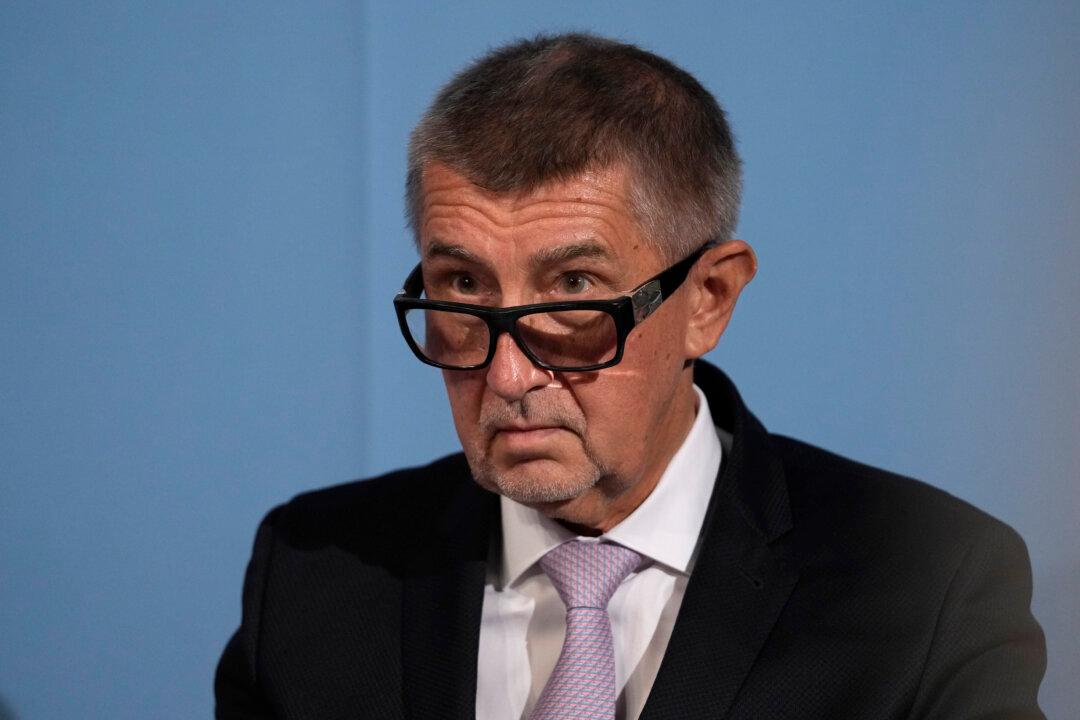PRAGUE—Prime Minister Andrej Babis’ party on Saturday narrowly lost the Czech Republic’s parliamentary election, a surprise development that could mean the end of the billionaire’s reign in power.
The two-day election to fill 200 seats in the lower house of the Czech Republic’s parliament took place shortly after the International Consortium of Investigative Journalists reported details of Babis’ overseas financial dealings in a project dubbed the “Pandora Papers.” Babis, 67, has denied wrongdoing.





